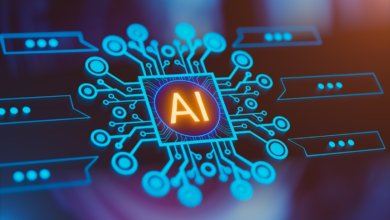The Evolving Impact of Artificial Intelligence on British Society | by Quentin Drummond Anderson | Apr, 2024

Navigating the Promises and Perils of AI Integration
26th April 2024
The integration of artificial intelligence (AI) into British society has been a complex and multifaceted journey, bringing both remarkable opportunities and concerning challenges. As this transformative technology becomes increasingly ubiquitous, it is crucial that we carefully examine its impact and chart a course towards a future where the benefits of AI are maximised and its risks are mitigated.
Reaping the Rewards of AI
Across a diverse range of industries, British businesses have leveraged the power of AI to drive remarkable gains in efficiency and productivity. From streamlining manufacturing processes to enhancing decision-making in the financial sector, AI-powered automation has empowered workers to focus on higher-level, creative tasks. Moreover, the rise of virtual assistants and natural language processing has introduced new conveniences into the daily lives of British citizens, revolutionising the way we interact with technology.
Looking beyond the commercial realm, AI also holds immense potential to tackle some of the most pressing global challenges facing the UK and the world. Advancements in areas such as food production, water management, and healthcare delivery could significantly improve the lives of people, particularly in developing regions. By augmenting human intelligence and creativity, AI may unlock innovative solutions to complex problems that have long evaded traditional approaches.
Navigating the Challenges of AI Integration
However, the integration of AI has also given rise to a host of concerning issues that demand our attention. The use of autonomous weapons systems, for instance, raises ethical questions about the loss of human control and the potential for indiscriminate harm. Additionally, the opacity and complexity of AI algorithms have made it increasingly difficult to ensure transparency and accountability, leaving the door open for algorithmic biases and mistakes to perpetuate social inequalities.
Moreover, the spectre of AI-driven job displacement has sparked widespread anxiety among British workers, who fear being replaced by machines. Addressing this workforce disruption will require a concerted effort to reskill and retrain individuals, as well as the development of robust social safety nets to support those affected by technological change.
Charting a Responsible Path Forward
As the UK continues to grapple with the multifaceted impacts of AI, it is clear that a balanced and thoughtful approach is necessary. Maintaining human oversight, promoting ethical AI development, and addressing the societal implications of this technology will be crucial in ensuring that the integration of AI enhances rather than undermines the well-being of British citizens.
By learning from the lessons of the past and embracing a collaborative, interdisciplinary approach, the UK can harness the transformative power of AI while mitigating its risks. Only through this careful navigation can we unlock a future where the promises of artificial intelligence are realised, and the well-being of the British people remains at the forefront of our collective efforts.
Repeating History: The Perils of Failing to Learn from the Past in AI Integration
The integration of artificial intelligence (AI) into our society has been a complex and often tumultuous journey, one that bears striking similarities to the lessons we have failed to learn from history. As we grapple with the promises and perils of this transformative technology, it is crucial that we heed the warnings of the past to avoid repeating the same mistakes.
Overambitious Claims and Unrealistic Expectations
In the early days of AI, pioneers made bold predictions about the rapid development of human-level artificial intelligence, only to be met with disappointment and reduced funding during the “AI winter” of the 1970s and 1980s.
Today, we see a similar pattern emerging, with companies and policymakers making grandiose claims about the capabilities of current AI systems. Failing to learn from this history risks setting the stage for another cycle of hype, disillusionment, and stagnation.
Underestimating the Complexity of the Challenge
The researchers of the past grossly underestimated the difficulty of replicating human intelligence, leading to frustration and loss of momentum.In the present day, we must be wary of repeating this error, maintaining a realistic understanding of the limitations and challenges inherent in integrating AI into our society.
Cyclical Nature of Funding and Interest
The history of AI has been marked by cycles of hype, investment, and disillusionment.As we move forward, we must be prepared for potential future “AI winters” and maintain steady, long-term support for research and development, rather than succumbing to the temptation of short-term thinking.
Importance of Interdisciplinary Collaboration
The progress of AI has often been driven by the convergence of ideas from various fields, such as computer science, neuroscience, and philosophy.
Continuing this interdisciplinary cooperation will be crucial for the successful integration of AI, yet another lesson we must learn from the past.
By heeding these historical lessons, we can work to avoid repeating the mistakes of the past and ensure a more sustainable and responsible integration of artificial intelligence into our society. Only then can we truly harness the transformative power of this technology while mitigating its risks and challenges.
DVC Consultants,the author of this blog is a thought- leader and vanguard management consulting firm, specialising in the implementation and integration of AI into companies .If you would like to know more contact q.anderson@dvcconsultants.com



